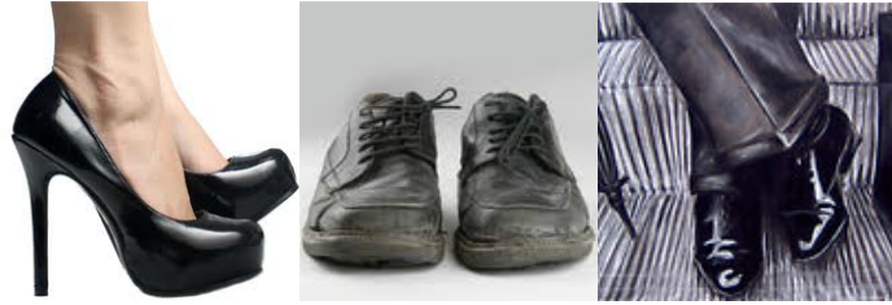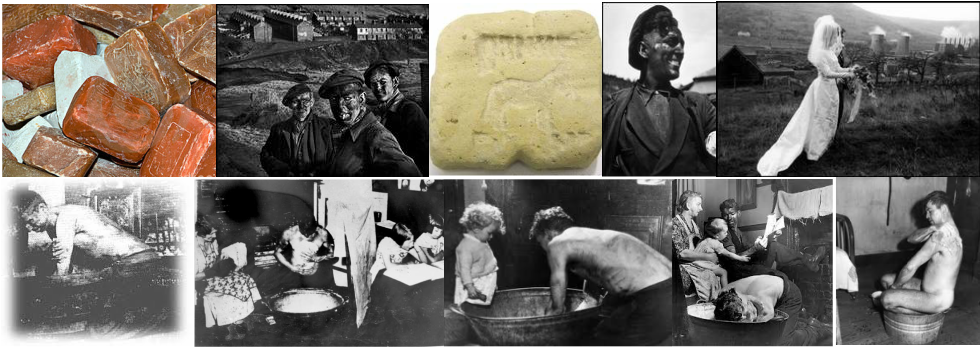- Home
- Site Index
- About Me
-
My Books
- Book List & Themes
- Strictly for Adults Novels >
-
Tales from Portlaw
>
- No Need to Look for Love
- 'The Love Quartet' >
-
The Priest's Calling Card
>
- Chapter One - The Irish Custom
- Chapter Two - Patrick Duffy's Family Background
- Chapter Three - Patrick Duffy Junior's Vocation to Priesthood
- Chapter Four - The first years of the priesthood
- Chapter Five - Father Patrick Duffy in Seattle
- Chapter Six - Father Patrick Duffy, Portlaw Priest
- Chapter Seven - Patrick Duffy Priest Power
- Chapter Eight - Patrick Duffy Groundless Gossip
- Chapter Nine - Monsignor Duffy of Portlaw
- Chapter Ten - The Portlaw Inheritance of Patrick Duffy
- Bigger and Better >
- The Oldest Woman in the World >
-
Sean and Sarah
>
- Chapter 1 - 'Return of the Prodigal Son'
- Chapter 2 - 'The early years of sweet innocence in Portlaw'
- Chapter 3 - 'The Separation'
- Chapter 4 - 'Separation and Betrayal'
- Chapter 5 - 'Portlaw to Manchester'
- Chapter 6 - 'Salford Choices'
- Chapter 7 - 'Life inside Prison'
- Chapter 8 - 'The Aylesbury Pilgrimage'
- Chapter 9 - Sean's interest in stone masonary'
- Chapter 10 - 'Sean's and Tony's Partnership'
- Chapter 11 - 'Return of the Prodigal Son'
- The Alternative Christmas Party >
-
The Life of Liam Lafferty
>
- Chapter One: ' Liam Lafferty is born'
- Chapter Two : 'The Baptism of Liam Lafferty'
- Chapter Three: 'The early years of Liam Lafferty'
- Chapter Four : Early Manhood
- Chapter Five : Ned's Secret Past
- Chapter Six : Courtship and Marriage
- Chapter Seven : Liam and Trish marry
- Chapter Eight : Farley meets Ned
- Chapter Nine : 'Ned comes clean to Farley'
- Chapter Ten : Tragedy hits the family
- Chapter Eleven : The future is brighter
-
The life and times of Joe Walsh
>
- Chapter One : 'The marriage of Margaret Mawd and Thomas Walsh’
- Chapter Two 'The birth of Joe Walsh'
- Chapter Three 'Marriage breakup and betrayal'
- Chapter Four: ' The Walsh family breakup'
- Chapter Five : ' Liverpool Lodgings'
- Chapter Six: ' Settled times are established and tested'
- Chapter Seven : 'Haworth is heaven is a place on earth'
- Chapter Eight: 'Coming out'
- Chapter Nine: Portlaw revenge
- Chapter Ten: ' The murder trial of Paddy Groggy'
- Chapter Eleven: 'New beginnings'
-
The Woman Who Hated Christmas
>
- Chapter One: 'The Christmas Enigma'
- Chapter Two: ' The Breakup of Beth's Family''
- Chapter Three: From Teenager to Adulthood.'
- Chapter Four: 'The Mills of West Yorkshire.'
- Chapter Five: 'Harrison Garner Showdown.'
- Chapter Six : 'The Christmas Dance'
- Chapter Seven : 'The ballot for Shop Steward.'
- Chapter Eight: ' Leaving the Mill'
- Chapter Ten: ' Beth buries her Ghosts'
- Chapter Eleven: Beth and Dermot start off married life in Galway.
- Chapter Twelve: The Twin Tragedy of Christmas, 1992.'
- Chapter Thirteen: 'The Christmas star returns'
- Chapter Fourteen: ' Beth's future in Portlaw'
-
The Last Dance
>
- Chapter One - ‘Nancy Swales becomes the Widow Swales’
- Chapter Two ‘The secret night life of Widow Swales’
- Chapter Three ‘Meeting Richard again’
- Chapter Four ‘Clancy’s Ballroom: March 1961’
- Chapter Five ‘The All Ireland Dancing Rounds’
- Chapter Six ‘James Mountford’
- Chapter Seven ‘The All Ireland Ballroom Latin American Dance Final.’
- Chapter Eight ‘The Final Arrives’
- Chapter Nine: 'Beth in Manchester.'
- 'Two Sisters' >
- Fourteen Days >
-
‘The Postman Always Knocks Twice’
>
- Author's Foreword
- Contents
- Chapter One
- Chapter Two
- Chapter Three
- Chapter Four
- Chapter Five
- Chapter Six
- Chapter Seven
- Chapter Eight
- Chapter Nine
- Chapter Ten
- Chapter Eleven
- Chapter Twelve
- Chapter Thirteen
- Chapter Fourteen
- Chapter Fifteen
- Chapter Sixteen
- Chapter Seventeen
- Chapter Eighteen
- Chapter Nineteen
- Chapter Twenty
- Chapter Twenty-One
- Chapter Twenty-Two
-
Celebrity Contacts
-
Thoughts and Musings
- Bereavement >
- Nature >
-
Bill's Personal Development
>
- What I'd like to be remembered for
- Second Chances
- Roots
- Holidays of Old
- Memorable Moments of Mine
- Cleckheaton Consecration
- Canadian Loves
- Mum's Wisdom
- 'Early life at my Grandparents'
- Family Holidays
- 'Mother /Child Bond'
- Childhood Pain
- The Death of Lady
- 'Soldiering On'
- 'Romantic Holidays'
- 'On the roof'
- Always wear clean shoes
- 'Family Tree'
- The importance of poise
- 'Growing up with grandparents'
- Love & Romance >
- Christian Thoughts, Acts and Words >
- My Wedding
- My Funeral
- Audio Downloads
- My Singing Videos
- Bill's Blog
- Contact Me
'Always Wear Clean Shoes'
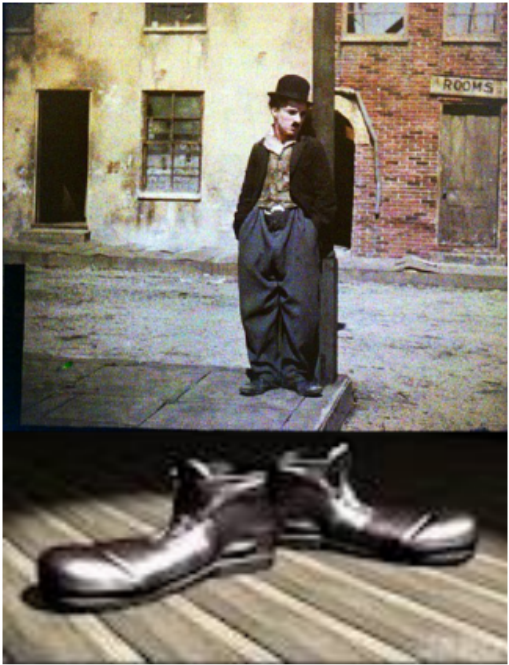
All of my life, I have always worn clean shoes. They may have sometimes needed repairing, but they were always clean and highly polished. During earlier years, this may have been more for pride than any practical purpose, but at least unlike the economic slaves of the past, my mother always tried to ensure that we didn't go around barefoot if she could help it, though the sole might be reinforced from the inside of the shoe if required.
I can well recall a time growing up when household poverty decreed that I wouldn’t have a pair of new shoes, clean or otherwise. Many a time I was obliged to wear secondhand footwear and generally considered myself very fortunate if the size of the boot was no greater than one size larger or smaller than my feet. I also recall filling an inner shoe with anything soft that would protect the hole in the sole from the wet ground beneath.This inner stuffing was also very useful for preventing any protruding damp, but it had no effect whatsoever of nails or stones in the road piercing through the sole to the uppers and attacking the base of the foot if walked upon.
These were the days when the parents of all large families required six essential items with which to set up house and home. The first was a tin bath that was large enough to bathe the coal dust off my father when he came home from his shift at the pit. He would always get the hottest and cleanest water and by the time that the youngest child got their turn, they'd be bathing in cold sludge.
I can well recall a time growing up when household poverty decreed that I wouldn’t have a pair of new shoes, clean or otherwise. Many a time I was obliged to wear secondhand footwear and generally considered myself very fortunate if the size of the boot was no greater than one size larger or smaller than my feet. I also recall filling an inner shoe with anything soft that would protect the hole in the sole from the wet ground beneath.This inner stuffing was also very useful for preventing any protruding damp, but it had no effect whatsoever of nails or stones in the road piercing through the sole to the uppers and attacking the base of the foot if walked upon.
These were the days when the parents of all large families required six essential items with which to set up house and home. The first was a tin bath that was large enough to bathe the coal dust off my father when he came home from his shift at the pit. He would always get the hottest and cleanest water and by the time that the youngest child got their turn, they'd be bathing in cold sludge.
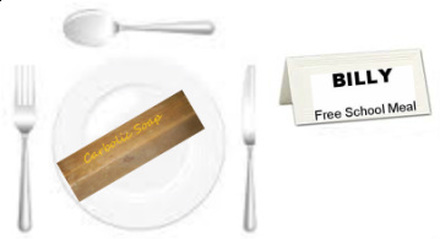
Second, was a well-stocked supply of carbolic soap. Carbolic soap had clearly been designed for the poorest classes, as one had to scrub the skin with it so harshly in order to remove the dirt. It also came accompanied by its own peculiar aromatic stigma, as it left an unmistakable stink on the body of whoever had washed with it. Use it and rest assured that anyone within five yards of you could clearly smell it on you for the next three days. The use of this poor person's soap made you easily noticed as being one of those on the poverty line, just as easily you were able to be singled out at school on a Monday morning during the 'dinners for the week' count of heads. Those children who never went to the front to pay the class teacher their dinner money, but instead received 'free school meals' remained in their seats. These were the very same children who could be guaranteed to stink of carbolic soap. One of the good things I remember from the school dinners of the late 1940's and early 1950's was that plastic plates and knives and forks had not yet been discovered and we all ate from crockery and held cutlery correctly that had been made from the best British steel made in Sheffield.
Third, was the Donkey Stone; a cleaning survivor from the war years that women daily used to wash down their doorsteps to save face should a visitor come calling at the entrance to their house. It was even rumoured that some miners without carbolic soap were so dirty that their wives would sometimes scrape the soot off their skins in the tin bath with the Donkey Stone as they scrubbed their men clean!
Fourth, was a large family bed that was capable of sleeping seven children head-to-tail. Such was a necessary household piece of furniture which was required until the family had a larger house to live in. I refer to those working class families who were fortunate enough to be allocated a three-bedroom council house, in which each bedroom could contain two beds, and the bed occupation could be reduced to three only!
Fifth was a large cooking pot capable of boiling a stone of potatoes at one go. Spuds were the staple diet of all large families, and if you were still hungry after eating a plate of spuds, there would always be more spuds left in the bottom of the large cooking pot.
Sixth and last was literally a 'last!'
"What's that?" I hear you ask. "A what?" 'A last' is what I said.'
A last is an essential tool of all cobblers and repairers of footwear, along with the father of all poor, large families. It is made from heavy, hard metal and has extensions in the size and shape of a different sized feet on top of a heavy base that prevents unnecessary movement. The cobbler simply places the footwear for repair over the last, and because the two objects are designed to fit snugly like a hand-in-glove, the shoe requiring repair is firmly positioned to be safely worked upon. Then, depending on the condition of the footwear being attended to, the base of the shoe might be re-soled or the stitching attached to the leather uppers might need 'shoe darning' or replacing. An extra six months of life to the footwear could also be guaranteed if the wearer was prepared to have steel tips applied to the heel of the shoe, and this six months of longer life could easily be extended by at least a further six months if the young person wearing them was prepared to have steel toe caps applied to the front of the shoe or boot also.
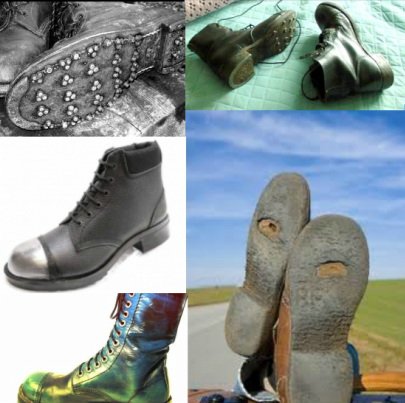
So, whichever way one looked at it, the degree of poverty experienced by the family was as plain to see as the standard and manner of footwear that one wore and the nature of the way they smelled to the nostrils of the better off! Though some were able to escape the experience of carbolic soap, the poorer children very soon learned that their choice was highly limited when it came to being shod.
They could either wear down the heel until they were no longer able to balance and stand up straight or they could hole the sole and use inner padding for the rest of the shoe's upper life. The 'shoe's life' in a poor household didn't refer to how long the shoe lasted before it fell to bits, but however long it needed to be worn before your mother could afford to replace them! Padding to a holed shoe was possible to get away with, so long as the wearer didn't let out any sounds of painful expression anytime they stood on a hard stone, and providing they never sat down in company and raised their feet off the ground to risk revealing their concealed poverty.
If on the other hand, however, one was prepared to tolerate the indignity of other children's name calling and be known as the sons of miners with their hob-nailed boots and clogs, one could at least have a good half-inch of leather sole between the flesh of one's feet and the hard road ahead. Along with heels tipped and toes capped, such reinforced footwear would be guaranteed to take a child from First to Middle School before they got another pair of footwear that would see them through until they commenced work in the mills or down the mine.
An accident at the age of 11 prevented me walking for the next three years, so shoes were no longer of immediate concern to me. At least the money that might have been spent on providing me with footwear could now be used on my younger siblings instead. Naturally, when my mobility returned and I had started to earn my own living working in the mill, the purchase of shoes became a top priority for me. For the next five years, I could have possibly been described as a male Imelda Marcos, as I amassed a large collection of shoes. There was no more steel tips or caps for this young man. No way! Nothing but the finest of Italian footwear would ever be allowed to protect my feet again. There were times when my mother would pull out her hair as I chose to spend almost a full week's wage upon black, Italian shoes of the softest leather that ever left a cow's hide. I recall that when I went to Canada at the age of 21 years, I took with me seven or eight pairs of top quality black, leather shoes which turned out to be entirely hopeless to deal with the severe cold climate without also placing a pair of 'overshoes' over them! I'd never before heard of overshoes; a device of a wellington shoe over an ordinary shoe to protect from the wearer's toes from frostbite and cold.
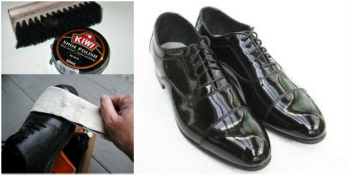
I may not have had shoes to wear at all stages of my early development, but of one thing, I can be sure. Had I owned a pair of shoes, my mother would have ensured that they were clean and highly polished before I was ever allowed to set foot out in them!
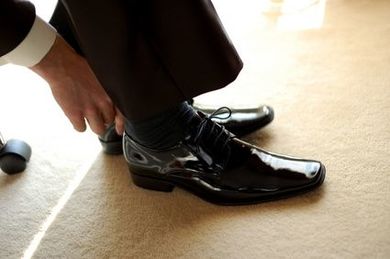
I grew up in a household of seven children of which I was the oldest, and even as a teenager, before I left the house, my mother would insist upon holding a ‘passing out parade’. Without fail, she would inspect my footwear (uppers naturally), and say, "Billy, you can always tell a gentleman by his shoes. He’s the one who wears the most polished pair of shoes in the room."

Now, allow me to let you into a secret. Let me tell you, there may or may not be a reliable method of making out who’s a gentleman and who isn’t, but of one thing I can say without the slightest doubt; their shoes, it aint! The condition of a person's shoe pedigree is not a reliable indicator of personality nor character trait; take it from me!
After twenty-five years working as a Probation Officer, life gradually taught me the flaws in my mother's Irish home-spun argument. Any worldly wisdom to be found in that assertion had undoubtedly been spun from the wings of an Irish butterfly that had kissed the Blarney Stone.
During my Probation Officer career, I discovered that the most perfectly cleaned and highly polished of all footwear were to be found on the feet of murderers, rapists, arsonists and paedophiles. In fact, I don’t recall ever having met any person from any of these four offending groups, who’d dare to venture out towards their prey unless they were assured in their own minds beforehand, that they’d be able to see the reflection of their victims in their leather uppers during the commission of their horrible and heinous crimes.
After twenty-five years working as a Probation Officer, life gradually taught me the flaws in my mother's Irish home-spun argument. Any worldly wisdom to be found in that assertion had undoubtedly been spun from the wings of an Irish butterfly that had kissed the Blarney Stone.
During my Probation Officer career, I discovered that the most perfectly cleaned and highly polished of all footwear were to be found on the feet of murderers, rapists, arsonists and paedophiles. In fact, I don’t recall ever having met any person from any of these four offending groups, who’d dare to venture out towards their prey unless they were assured in their own minds beforehand, that they’d be able to see the reflection of their victims in their leather uppers during the commission of their horrible and heinous crimes.
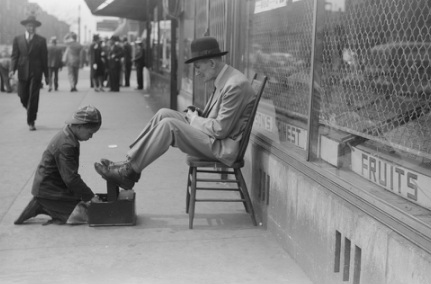
And yet, despite my mother’s flakey theories upon the cleanliness of shoes and the making of the perfect gentleman being inextricably bound up in her own knot of Irish certainty, I nevertheless continued to walk out in polished footwear for the whole of my life. At the age of 75 years, I still polish my shoes before I go out, even if they look perfectly clean enough to the eyes of others.
Indeed, I'd go so far as to willingly acknowledge my refusal to wear shoes that haven't been polished since the time they were previously worn (even if they remained clean to the naked eye), is a kind of neurosis that I will probably die with. It is only in the last year that I have been prepared to kick off my shoes at the end of the day and to retire to bed without getting out the shoe polish and putting a final shine on them; ready to be worn again in the pristine condition that they’d become accustomed to. One might have thought in earlier years that I was training to win the medal as the best shoe-shining boy from Yorkshire to Wyoming.
Indeed, I'd go so far as to willingly acknowledge my refusal to wear shoes that haven't been polished since the time they were previously worn (even if they remained clean to the naked eye), is a kind of neurosis that I will probably die with. It is only in the last year that I have been prepared to kick off my shoes at the end of the day and to retire to bed without getting out the shoe polish and putting a final shine on them; ready to be worn again in the pristine condition that they’d become accustomed to. One might have thought in earlier years that I was training to win the medal as the best shoe-shining boy from Yorkshire to Wyoming.
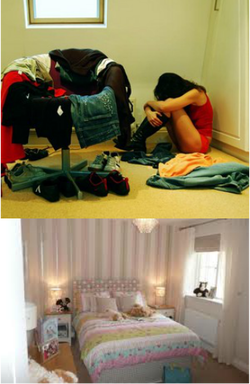
The thing about neurosis I learned long ago is that everyone is neurotic about something and the only distinctinction between one person and another is 'how bad is our neurosis from theirs?' Some kinds of neurosis has always been 'more acceptable' to self and others than other types. I have also learned during my lifetime, that the way to eradicate and cure oneself of any neurosis, is to substitute it with another one; hopefully a more 'acceptable one!'
Once, the change in neurosis backfired on me after I'd shown a mother at her wit's end with her teenage daughter's untidy and filthy habits how to change one neurosis for a better one. The teenager's neurosis of never washing herself, wearing the same clothes all week or being prepared to walk over objects in her untidy room instead of picking them up was eventually transformed into a neurosis for order, tidiness and hygiene. Instead of one bath every three months, she now bathes four times daily and washes her hands at least six times between breakfast and lunch. Her mother could never seem to make up her mind if she was pleased with her daughter's new neurosis. No longer has she to tidy up after her, but getting her daughter to leave the house without her needing to go back and wash her hands again should she touch the door handle on the way out without gloves on her hands, is also as big a pain as previously.
Once, the change in neurosis backfired on me after I'd shown a mother at her wit's end with her teenage daughter's untidy and filthy habits how to change one neurosis for a better one. The teenager's neurosis of never washing herself, wearing the same clothes all week or being prepared to walk over objects in her untidy room instead of picking them up was eventually transformed into a neurosis for order, tidiness and hygiene. Instead of one bath every three months, she now bathes four times daily and washes her hands at least six times between breakfast and lunch. Her mother could never seem to make up her mind if she was pleased with her daughter's new neurosis. No longer has she to tidy up after her, but getting her daughter to leave the house without her needing to go back and wash her hands again should she touch the door handle on the way out without gloves on her hands, is also as big a pain as previously.
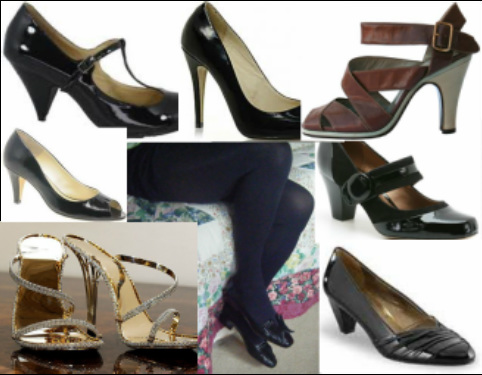
It is interesting to note that when I met my Sheila in December, 2010, one of the very first things I noticed about her was how polished her shoes were or weren't. I could tell from our first date that we wouldn't have a meeting of minds on everything, when I noticed a small scuff on the heel of her left shoe, which obviously hadn't been attended to since they were previously worn or dare I think it, initially bought. I recall instantly thinking that anyone who is privileged to wear expensive leather shoes ought to be willing to at least polish them each time they are worn. Sheila hasn't changed, I must add. She is still remiss when it comes to polishing her shoes and unfortunately, my mother isn't around anymore to advise me any longer as to its meaning. Ladies were never mentioned by her, so we'll never know now, will we?
Copyright William Forde April, 2012. (Amended and reviewed: April, 2018)
Copyright William Forde April, 2012. (Amended and reviewed: April, 2018)
